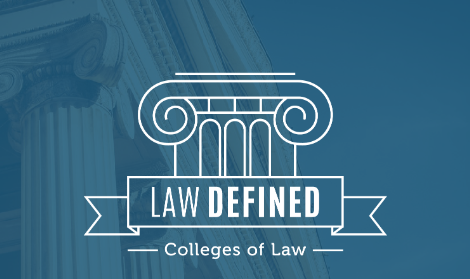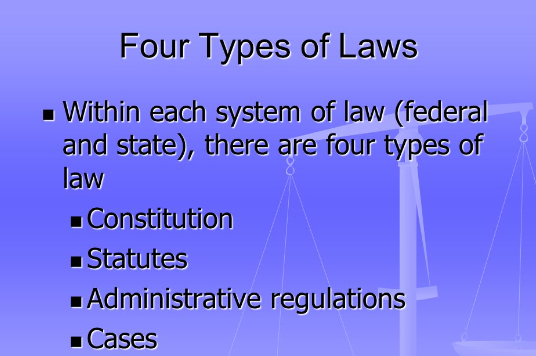The world of law is a multifaceted realm, intricately woven to maintain order and justice in society. Four main types of law serve as the foundation of our legal system. Each type serves a unique purpose, addressing various aspects of our lives and society. Therefore, in this article, we will delve into the four main types of law – Criminal Law, Civil Law, Administrative Law, and Constitutional Law. In order to gain a better understanding of how they shape our lives and protect our rights.
Criminal Law: Safeguarding Society
Criminal Law is the sentry that guards society against unlawful actions that threaten its peace and security. It encompasses a broad range of offenses, from minor misdemeanors to grave felonies. Transitioning from the peaceful realm of everyday life to the criminal justice system can be a jarring experience for many. However, it is the cornerstone of maintaining social order.
When an individual commits a crime, they disrupt the fabric of society. Criminal Law steps in with the goal of not only punishing the wrongdoer but also deterring others from following suit. It accomplishes this through sanctions such as fines, probation, or imprisonment. The transition from liberty to incarceration is swift and somber, serving as a stern reminder of the consequences of violating the law.
Civil Law: Resolving Disputes
In addition, Civil Law exists to address conflicts and disputes between individuals, organizations, or entities. Unlike Criminal Law, which deals with offenses against society as a whole, Civil Law focuses on the rights and responsibilities between private parties. Transitioning into the realm of Civil Law typically involves a plaintiff seeking a remedy, like compensation or an injunction, from a court to rectify a perceived wrong.
In Civil Law, the transition from dispute to resolution is often accompanied by negotiation, mediation, or litigation. Moreover, courts serve as impartial referees, ensuring that justice prevails. Whether it’s a contractual disagreement, a family dispute, or a personal injury case, Civil Law strives to restore equity and harmony between parties.
Administrative Law: Regulating the State
Administrative Law governs the operations of government agencies and their interactions with citizens. It safeguards against potential abuses of power, ensuring that government actions are lawful and just. The transition into the realm of Administrative Law is characterized by a focus on accountability and transparency.
Furthermore, government agencies, tasked with implementing and enforcing regulations, often impact citizens’ lives significantly. Administrative Law steps in to ensure that these agencies adhere to legal standards, operate fairly, and make informed decisions. Through mechanisms like administrative hearings and appeals, individuals can challenge government actions and seek recourse when they feel their rights have been infringed upon.

Constitutional Law: Upholding Fundamental Rights
Constitutional Law is the guardian of our fundamental rights and liberties. It serves as the ultimate arbiter in ensuring that the government does not overstep its bounds and infringe upon the rights of its citizens. The transition into Constitutional Law involves examining the highest law of the land – the Constitution – and its interpretation by the judiciary.
The Constitution establishes the framework for our government, outlining the separation of powers, the Bill of Rights, and the fundamental principles that guide our nation. Constitutional Law cases often hinge on the interpretation of constitutional provisions, and the decisions made can have far-reaching consequences for society. The courts play a crucial role in ensuring that the government remains accountable to its citizens and respects their individual freedoms.
Conclusion
In the intricate tapestry of our legal system, these four main types of law – Criminal Law, Civil Law, Administrative Law, and Constitutional Law – play distinct yet interconnected roles. Criminal Law guards society against wrongdoing, Civil Law resolves disputes, Administrative Law regulates government agencies, and Constitutional Law upholds fundamental rights.
As we navigate our daily lives, these legal realms may seem separate, but they are the pillars that uphold our society’s framework. Whether transitioning from freedom to confinement, dispute to resolution, or government action to accountability, the different types of law ensure that justice is served, rights are protected, and order is maintained.
You May Find This Information Useful:
The 3 Branches of the Government
Why Are Laws Important In Every Epoch

